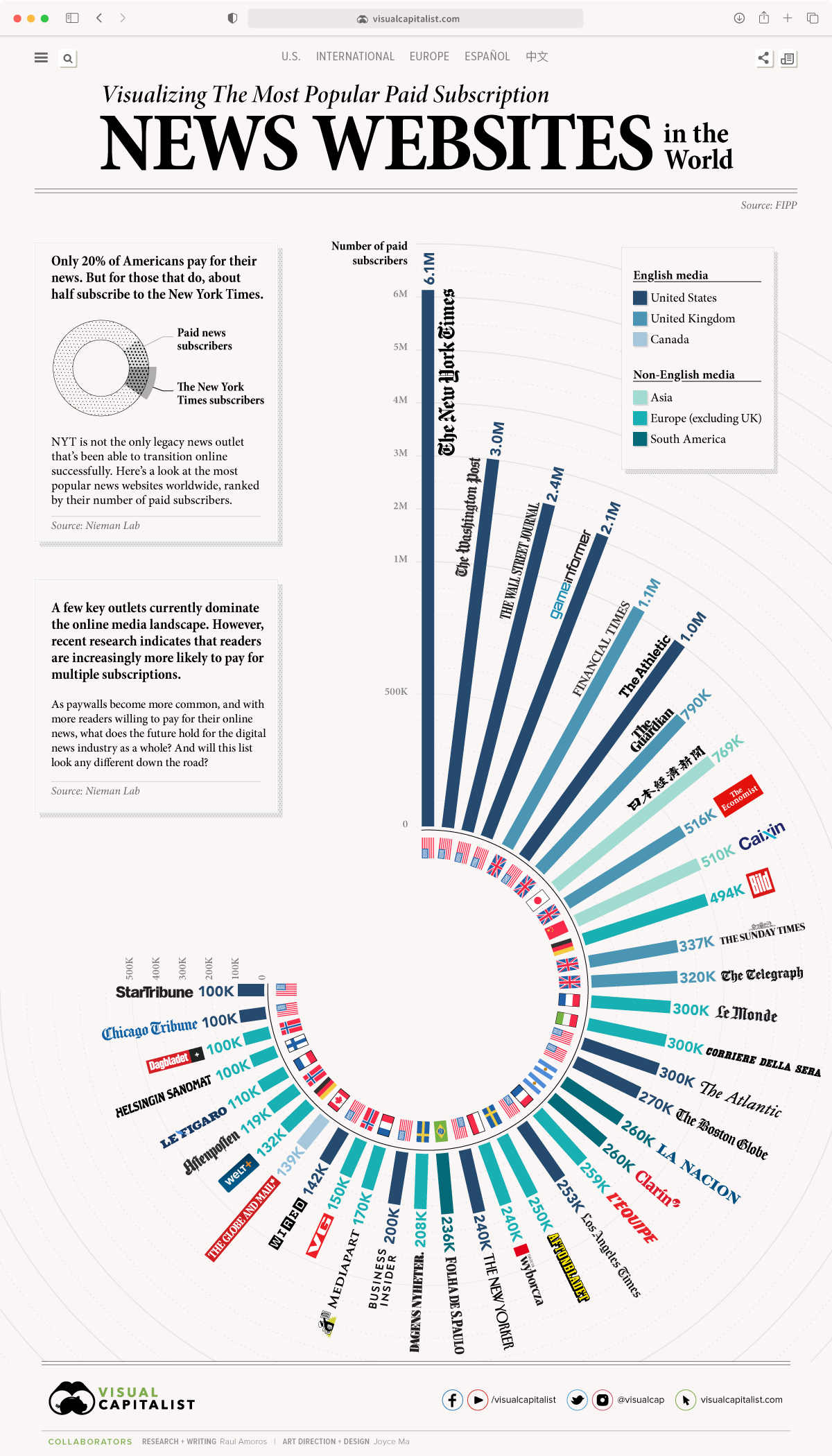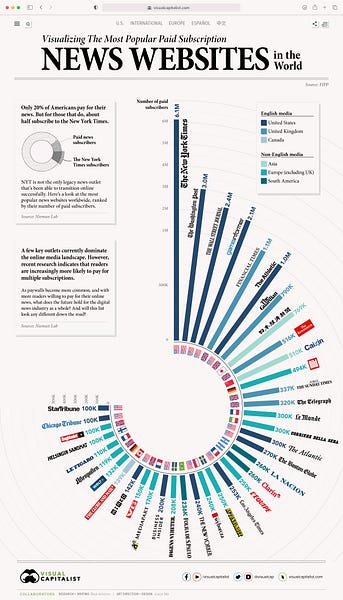Tech Terms
Machine Learning — the use and development of computer systems that are able to learn and adapt without following explicit instructions, by using algorithms and statistical models to analyze and draw inferences from patterns in data.
Senate Passes $200B for Innovation. Now What?
What’s New: Last week, the U.S. Senate passed the Innovation and Competition Act with a bipartisan vote of 68-32.
Why This Matters: The bill aims to significantly increase U.S. capacity in key technologies including semiconductors, robotics, and artificial intelligence (AI).
Key Points:
The bill provides more than $200 billion over the next five years for a host of innovation investments.
It also establishes a new directorate for tech and innovation at the National Science Foundation (NSF), with the Foundation receiving $81 billion in funding between 2022 and 2026.
$52 billion is dedicated to semiconductor manufacturing and other funds are directed at establishing “technology hubs” around the United States in regions where significant tech investment is not occurring.
The bill now heads to the House of Representatives, where it will likely be combined with an existing bill — the NSF for the Future Act. This hybrid bill will likely be passed in short order in the House, sending the legislation to a joint House-Senate conference committee to be finalized and then sent to the President for his signature.
What I’m Thinking:
There’s a reason this passed. There’s not a lot of truly bipartisan legislation coming out of Congress these days; but, our legislators have been mugged by reality when it comes to China and this type of massive spending bill typifies how the U.S. deals with big hairy problems — we pour money on it and hope it gets better. That necessarily means this bill has more than its share of “pork.” Even so, I’m convinced the passage of this bill is a net good for the nation.
A consensus is formed. In just the last few days, the White House has issued an Executive Order on “protecting Americans’ sensitive data from foreign adversaries,” another Executive Order laying the foundation for future action against Chinese tech companies like TikTok and WeChat, and the Secretary of Defense has taken personal responsibility for implementing the Pentagon’s new China strategy. Bottom line: there is no longer any confusion in Washington, D.C. about the challenge of China and the need for a serious, concerted effort to confront and defeat this challenge. The Innovation and Competition Act should be seen as a part of a much broader national response to the return of great power competition.
DARPA! DARPA! DARPA! My favorite provision in this bill is the doubling of the annual budget for the Defense Advanced Research Projects Agency (DARPA). This collection of super brains and mad scientists will now have an additional $3.5 billion annually to figure out computer-brain interfaces, technologies to detect and disrupt “fake news,” autonomous fighter jets, and other breakthrough innovations. For context, DARPA is where we got the internet, miniaturized GPS, stealth materials, and a host of other technologies we now take for granted.
Crooks Use FBI-Controlled App to Plan Crimes
What’s New: A huge swath of international drug dealers, hitmen, and weapons proliferators have been arrested after using an FBI-controlled messaging app to plan their crimes, reports the Washington Post.
Why This Matters: The digital stakeout allowed the FBI, Australian police, and European law enforcement agencies to identify, track, and eventually disrupt multiple criminal networks around the world.
Key Points:
The FBI created a messaging service called Anom and distributed it as a highly secure app on custom cellphones that were sold on the black market.
Over more than five years, Anom become very popular in criminal circles as high-profile illegal entities vouched for its integrity.
Bad guys believed their messages were fully encrypted — which they were — but these messages were also directly fed to law enforcement and the FBI and Australian officials pioneered a new way of decrypting these messages.
As of last week, more than 800 individuals had been arrested in the sting.
The operation has “struck a heavy blow against organized crime,” Australia’s Prime Minister Scott Morrison said, “not just in this country but one that will echo around organized crime around the world.”
What I’m Thinking:
Score one for the good guys. I’m totally down with this kind of operation. No issues whatsoever. I love that more than 9,000 law enforcement officers were able to read more than 27 million messages sent over 18 months. Just think of the multitude of drug deals, murder-for-hire schemes, human trafficking networks, and other awful things that were prevented by this effort.
Pentagon Wants Rockets for Cargo Delivery
What’s New: The Department of Defense is experimenting with reusable rockets — like those built by SpaceX — to deliver critical supplies anywhere in the world, reports CNBC.
Why This Matters: If successful, this type of capability would dramatically reduce the time and cost of delivering materials necessary for defense missions around the world.
Key Points:
The program, uncreatively called Rocket Cargo, is led by the U.S. Space Force and is researching capabilities like landing "a rocket on a wide range of non-traditional materials and surfaces," engineering "a rocket cargo bay and logistics for rapid loading and unloading" and air-dropping "cargo from the rocket after re-entry in order to service locations where a rocket or aircraft cannot possibly land."
The Air Force’s 2022 budget dedicates nearly $50 million to the project.
SpaceX’s Starship rockets are among several companies who could help meet the governments requirements, including the ability to be reused and to transport between 30 and 100 tons via “point-to-point” space travel.
Point-to-point space flight is when a rocket launches from earth, travels into space, and then returns to another location on earth. This type of travel would make it theoretically possible to deliver supplies (and possibly personnel) anywhere on earth in under one hour.
What I’m Thinking: This is going to happen. The technology not only exists, but has been demonstrated by SpaceX and others. We’re not far from a future where we will deliver materials and people anywhere in the world in less time than it takes to get a drivers license at the DMV. The only real question is, will Jeff Bezos make this an Amazon Prime perk before the DoD can deploy it?
Let’s Get Visual

Nerd Humor
Quick Clicks
U.S. launches task force to study opening gov data for AI research
This is how fast a password leaked on the web will be tested out by hackers
Google is using AI to design its next generation of AI chips more quickly than humans can
U.S. Navy completes second autonomous transit of the Pacific
As mystery over 'Havana Syndrome' lingers, a new concern emerges
That’s it for this Monday Brief. Thanks for reading, and if you think someone else would like this newsletter, please share it with your friends and followers. Have a great week!






Please note that we at The Dispatch hold ourselves, our work, and our commenters to a higher standard than other places on the internet. We welcome comments that foster genuine debate or discussion—including comments critical of us or our work—but responses that include ad hominem attacks on fellow Dispatch members or are intended to stoke fear and anger may be moderated.
With your membership, you only have the ability to comment on The Morning Dispatch articles. Consider upgrading to join the conversation everywhere.